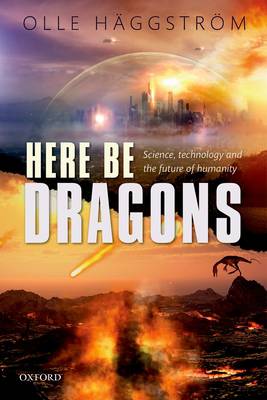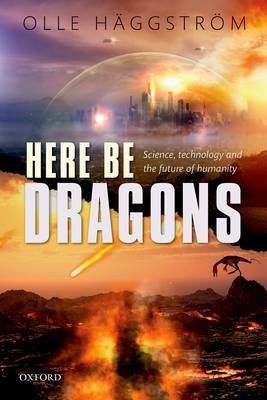
Door een staking bij bpost kan je online bestelling op dit moment iets langer onderweg zijn dan voorzien. Dringend iets nodig? Onze winkels ontvangen jou met open armen!
- Afhalen na 1 uur in een winkel met voorraad
- Gratis thuislevering in België vanaf € 30
- Ruim aanbod met 7 miljoen producten
Door een staking bij bpost kan je online bestelling op dit moment iets langer onderweg zijn dan voorzien. Dringend iets nodig? Onze winkels ontvangen jou met open armen!
- Afhalen na 1 uur in een winkel met voorraad
- Gratis thuislevering in België vanaf € 30
- Ruim aanbod met 7 miljoen producten
Zoeken
€ 54,95
+ 109 punten
Omschrijving
There is a widely held conception that progress in science and technology is our salvation, and the more of it, the better. This, however, is an oversimplified and even dangerous attitude. While the future will certainly offer huge changes due to such progress, it is far from certain that all of these changes will be for the better. The unprecedented rate of technological development that the 20th century witnessed has made our lives today vastly different from those in 1900. No slowdown is in sight, and the 21st century will most likely see even more revolutionary changes than the 20th, due to advances in science, technology and medicine. Particular areas where extraordinary and perhaps disruptive advances can be expected include biotechnology, nanotechnology, and machine intelligence. We may also look forward various ways to enhance human cognitive and other abilities using, e.g., pharmaceuticals, genetic engineering or machine-brain interfaces - perhaps to the extent of
changing human nature beyond what we currently think of as human, and into a posthuman era. The potential benefits of all these technologies are enormous, but so are the risks, including the possibility of human extinction. This book is a passionate plea for doing our best to map the territories ahead of us, and for acting with foresight, so as to maximize our chances of reaping the benefits of the new technologies while avoiding the dangers.
changing human nature beyond what we currently think of as human, and into a posthuman era. The potential benefits of all these technologies are enormous, but so are the risks, including the possibility of human extinction. This book is a passionate plea for doing our best to map the territories ahead of us, and for acting with foresight, so as to maximize our chances of reaping the benefits of the new technologies while avoiding the dangers.
Specificaties
Betrokkenen
- Auteur(s):
- Uitgeverij:
Inhoud
- Aantal bladzijden:
- 288
- Taal:
- Engels
Eigenschappen
- Productcode (EAN):
- 9780198723547
- Verschijningsdatum:
- 14/03/2016
- Uitvoering:
- Hardcover
- Formaat:
- Genaaid
- Afmetingen:
- 236 mm x 160 mm
- Gewicht:
- 544 g

Alleen bij Standaard Boekhandel
+ 109 punten op je klantenkaart van Standaard Boekhandel
Beoordelingen
We publiceren alleen reviews die voldoen aan de voorwaarden voor reviews. Bekijk onze voorwaarden voor reviews.











